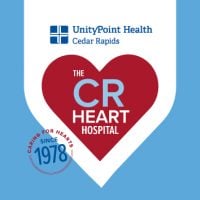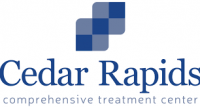Prairie View Management
Drug Rehab Center in Fayette, Iowa
Prairie View Management is an accredited addiction treatment facility in Fayette, Iowa that offers personalized treatment plans and evidence-based services for addiction and substance abuse, as well as additional support services such as education and family therapy, to ensure long-term success in recovery.
About Prairie View Management in Iowa
Prairie View Management is a behavioral health and addiction treatment facility located in Fayette, Iowa. They provide a wide range of services for individuals and families in need of addiction and substance abuse healing and support. Their staff works to provide resources and opportunities for those seeking to recover from addiction in a safe and supportive setting. They specialize in individualized treatment plans that are tailored to the specific needs of each client.
At Prairie View Management, they provide evidence-based services for addiction, preventing relapse through behavioral health therapy and medication-assisted therapies. Additionally, they offer assessments, day treatment services, and outpatient services for those in need. With their focus on personalized treatment, their staff works closely with clients to develop treatment plans that fit their individual needs and provide strategies for coping with their addiction. They also provide additional support services such as education, family therapy, and other resources to ensure long-term success in recovery.
Prairie View Management is accredited by the Commission on Accreditation of Rehabilitation Facilities (CARF) and licensed by the Iowa Department of Public Health. They also participate in the Iowa Department of Human Services and the Women, Infants, and Children (WIC) program. Furthermore, they collaborate with community mental health organizations and primary care providers to ensure the best possible care and treatment for those seeking help. Their treatment philosophy is evidence-based and person-centered, and their team works to provide quality and compassionate care to those in need.
Genders
Ages
Modality
Additional
Conditions and Issues Treated
When someone in struggles with both addiction and mental or emotional illness, this is considered a dual diagnosis. Dual diagnosis treatment can include therapy for these issues to happen simultaneously, which will allow either of them to be treated effectively.
Sometimes people who have suffered from addiction disorder also suffer from co-occurring disorders such as depression, anxiety, bipolar disorder, etc., making them “dual diagnoses.” Dual diagnoses require specialized treatment programs where drug and alcohol addiction are addressed along with psychiatric illnesses. Some rehabilitation facilities provide patients suffering from cooccurrences a program with highly integrated services and a clean environment with few distractions to help them succeed.
Levels of Care Offered
This center offers a variety of custom treatment tailored to individual recovery. Currently available are Dual-Diagnosis, Inpatient, with additional therapies available as listed below.
Inpatient treatment for alcoholism or drug addiction is an option that provides the addict with a supportive environment in which they can stop using. After detox, an inpatient treatment center provides a structured environment for the addict to recover from their addiction and begin taking steps toward a lifetime of sobriety.
This type of treatment is appropriate for addicts that are most in need of intensive care and supervision. This includes those who were unable to quit on their own, those who need more structure than they can get in outpatient treatment, and those whose addiction has led them into legal trouble or severe health problems.
Therapies & Programs
Group therapy can help build a stronger support system and give addicts in Fayette, IA insight into their addiction that they gain through shared conversations. Group therapy occurs in a controlled group environment, exclusive of one on one meetings. This makes it safer for patients to feel comfortable sharing the struggles they’re going through and gaining perspective.
Trauma therapy is beneficial for people who are recovering from drug addiction because it helps them heal from past traumas that may have caused them to turn to harmful substances or led them to experience negative emotions that contributed to their destructive behaviors.
This type of treatment works by processing difficult experiences so individuals can learn how to process these events without having to turn to substances for coping.
Trauma therapy can help addicts in the following ways:
- Helps individuals understand their experiences and emotional responses to difficult events, including why they turned to drugs or alcohol
- Provides them with comfort and support while working through difficult emotions related to these traumatic experiences
- Offers an opportunity for addicts to have a voice and be heard, which can improve their self-esteem
- Can help them develop coping skills so they can better respond to triggers instead of turning to substance abuse.
Dialectical Behavior Therapy (DBT) is a cognitive-behavioral therapy that helps patients understand the relationship between their thoughts, feelings, and behaviors. It is beneficial for those whose addictions and behaviors stem from severe mental health issues. The term “Dialectic” means the integration of opposites. In substance abuse, DBT refers to accepting the patient’s addiction and working to change their thoughts and behavior. It improves life skills such as controlling intense emotions without reacting impulsively, resolving interpersonal conflicts effectively, and promoting awareness about self and others.
It’s important to remember that malnutrition can affect your mood and energy level, which affects your desire to get sober. Good nutrition helps keep your body strong against the familiar ravages of drug use–tuberculosis, hepatitis, abscesses, infections, etc. — as well as the physical symptoms of withdrawal. If you’re eating right, you’ll have more energy for productive activities and will have more strength to fight cravings.
Nicotine Replacement Therapy (NRT) has many benefits for drug addicts who also choose to quit smoking. It is an effective technique at this treatment center that provides smokers with the nicotine they are addicted to without inhaling carcinogens from cigarettes to wean them off entirely. You can reduce your risk of heart disease and cancer, irritability, bone loss, stroke, type II diabetes, fertility in women, an enhanced sense of taste and smell.
Patient Experience
Experiential Therapy at Prairie View Management
Experiential therapy uses engaging activities to help patients access deeper, often hidden emotions. For example, the patient could role-play a problematic situation or engage in activities like drawing, painting, poetry writing, music composition, exercising, or journaling to help process intense feelings.
Experiential therapy is a type of therapeutic approach that focuses on having patients work through problems, issues, or emotions by engaging directly in some real experience. Experiential therapy occurs face-to-face with a therapist who helps these people to explore their feelings first hand.
It is based on the belief that to truly understand and gain insight into oneself and behavior; it is necessary and helpful to have real experiences with the issues involved. Some therapists have developed the experiential therapy approach as a way of treating addictive behaviors or dealing with impulses related to addiction. It comes from an existential school of psychotherapy called ‘experiential existential.’
Payment Options Accepted
For specific insurance or payment methods please contact us.
Is your insurance accepted?
Ask an expert, call (888) 674-0062
Additional Details
Specifics, location, and helpful extra information.
Fayette, Iowa 52142 Phone Number(563) 422-5606 Meta DetailsUpdated November 25, 2023
Staff Verified
Prairie View Management Patient Reviews
There are no reviews yet. Be the first one to write one.
Fayette, Iowa Addiction Information
Iowa ranks 2nd lowest in the nation for illicit drug use, but 12% of its residents are still using these drugs every single year. Methamphetamines account for more than 90% of all drug-related prison admissions in Iowa. Alcohol is the most widely abused substance in the state, with 23% of residents admitting to heavy drinking.
Treatment in Nearby Cities
- Tipton, IA (85.9 mi.)
- Elkader, IA (21.8 mi.)
- Manchester, IA (34.2 mi.)
- Perry, IA (137.4 mi.)
- Marengo, IA (77.4 mi.)
Centers near Prairie View Management
The facility name, logo and brand are the property and registered trademarks of Prairie View Management, and are being used for identification and informational purposes only. Use of these names, logos and brands shall not imply endorsement. RehabNow.org is not affiliated with or sponsored by Prairie View Management.



